#even though Anton was playing repulsive
Text
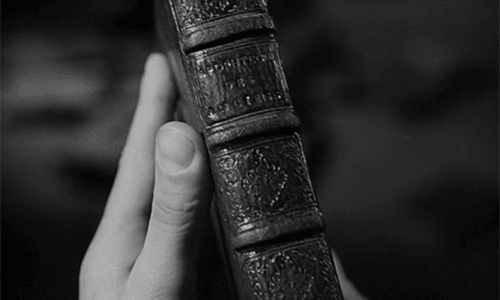


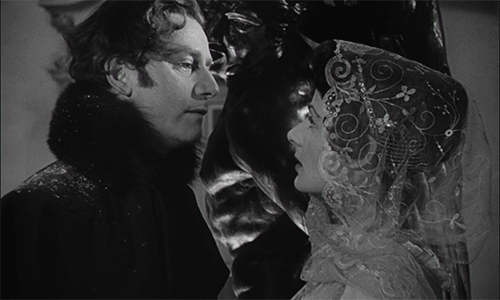
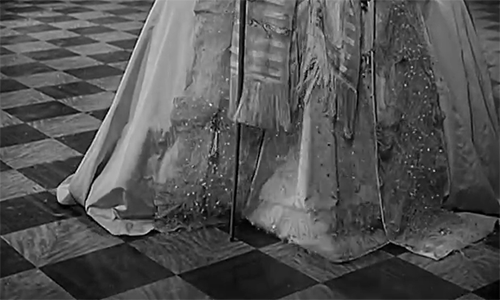
Every Film I Watch In 2023:
46. The Queen Of Spades (1949)
#the queen of spades#the queen of spades (1949)#Anton Walbrook#Yvonne Mitchell#2023filmgifs#my gifs#rather bloody good#even though Anton was playing repulsive#rather than exquisite#i loff him#even when he repulses me
24 notes
·
View notes
Text
The Apology
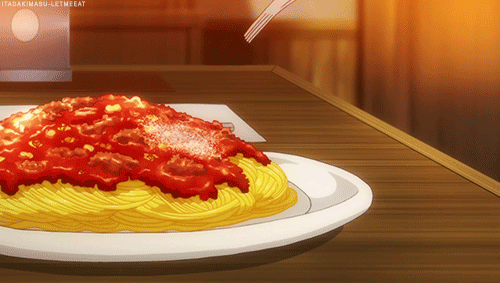
Woe be to the poor trees that died in vain - how many pieces of paper were torn up and wasted went beyond Anton’s count. He found each letter he drafted inadequate in some manner or another. This word was poor, or that blend of ink was an eye sore. No - he had to redo it until he was satisfied.
Perhaps what unbalanced the mage was the fact he was being so painstakingly careful in the first place. It was, Anton had to admit , so out of place for him to do so. Yet his mind felt caught on a snag - unable to settle with all but the best.
It had been quite some time since the Chronicler had crossed paths with a particular Demon-Huntress by the name of Korri. The encounter started normally enough- banter, play, some loose flirting. In truth, the mage truly had been drawn by the hint of a scholar after Anton had a brief meeting with her in Dalaran. But , yes, her alluring...personality, had added to the situation. And there had started his long list of mistakes.
Looking back, it was all quite foolish. He had been drawn in by the hint of something special. An unsaid quality that felt almost...kindred in fashion. Yet, when she had questioned him, what how had he responded? Poorly. He played it casual, too much so - and made a right fool of himself. The huntress had pressed him , and reeling for security , he had coughed up things that she tore apart immediately. Disaster of his own make at the behest of a vulnerability he didn’t know - or forced himself to forget , he had. And she had reminded him there and then.
“It wasn’t all that fair,” Anton told himself. But he was the one who hadn’t been genuine. Afraid to be, even.
Something about the elf unsettled him deeply - yet not in he way one was repulsed. It was quite the opposite , really - though he knew little of Korri, and she less of her, she -knew- what he was, and called him on acting otherwise. Perhaps he should have dropped it there - along with sending out the occasional book or note. But, the mage felt the strange urge to better things. And perhaps explain himself? If he could.
It was late into the afternoon when Anton finally burn out completing the note. He attached it safely within the package he was sending out around it - a collection of Arathi foods. Pastas and sauces. Fine bread and dips. Lobster ravioli and warm noodles. And a delicious assortment of desserts. All authentic - none conjured. And to make sure the food would remain fresh, the box itself was webbed in a preservation ward. It might as well have the longevity of jerky.
Now all there was to do was go about his business and hope. Hope, that his message would get a response this time.
“Dear K,
You had the right of it, and I didn’t want to admit it. I didn’t want to waste your time -quite the opposite , but I did. One way or another I hope you find this package to your liking. But if you find yourself in good spirits , and of with the luxury of a second chance, I will come with drinks to match, and far less bad puns. Speak ‘Kryn Val Tor’ to the note, and I will attend.
Warm regards,
A.T.”
- P.S. And by less bad puns , I mean to say no bad puns. Lesson learned.
( @fel-temptation )
5 notes
·
View notes
Text
Ten Great Movie Characters*
Okay so I’ll be honest, if not modest- My four favorite movie characters are Don, Clarke, Quail and above all Bridge from Jealous Gods. It’s to be expected that when you can make a character exactly who you want to see on screen, they’re going to be your favorite characters. But I do have some favorites outside of that film. In alphabetical order with no preferences between them, here are some of my favorite characters:
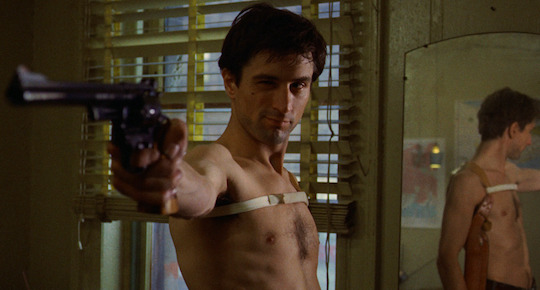
Travis Bickle - Taxi Driver (1976)
Robert De Niro
Travis is an awful person by every possible measure. Racist, angry, paranoid, jumpy, quite an idiot and far more but he’s probably the best representation of how and why people can go so wrong, yet still exist in the world. His relationship with Betsy is perversely innocent- He doesn’t understand why she might not want to go to a porn flick on a first date, it’s beyond him. The representation of his transmutation of his infatuation for her into plans for political violence is a stroke of writing genius, as is his similarly dangerous hero complex where Iris is concerned. Travis wants to be good, but he’s rotten to the core and ‘good’ to him is a fantasy concept.
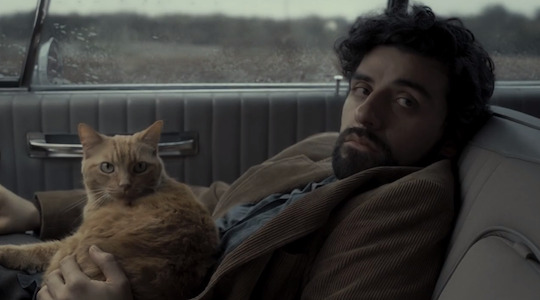
Llewyn Davis - Inside Llewyn Davis (2013)
Oscar Isaac
Davis is the perfect character for a Coen Brothers world. While Marge Gunderson normally claims that distinction, Davis is far more flawed and the Coens’ plots thrive on flaws. Davis is a narcissist of a type rarely seen in film, the type of person who doesn’t understand why he’s such a disaster magnet. As skilled at music as he is unskilled at living, he nonetheless keeps moving. He’s always in motion with no destination. Davis is the ultimate beatnik, stuck a few decades too late in a world that has no place for him.
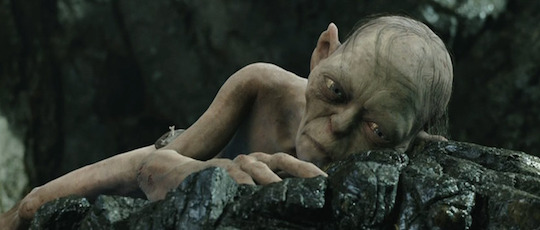
Gollum - The Lord of the Rings: The Two Towers (2002)
Anthony Serkis, Weta Digital
Fantasy characters are at an extreme disadvantage when it comes to realism in character because they exist in worlds unlike our own. Gollum works for two reasons: First, he’s based on drug addicts. The subtext seeps from Two Towers into a great pool surrounding the character. Second, he’s treated with respect. Being a “Creature” rather than a heroic lead, he could’ve easily been another CG crapfest, but Jackson chose to make him a person. Two of them actually, and that’s what makes him so much fun to watch. Gollum is an exceptionally advanced character in concept and execution, and is proof that even when it comes to the most basic elements of cinema, we are still finding new frontiers.
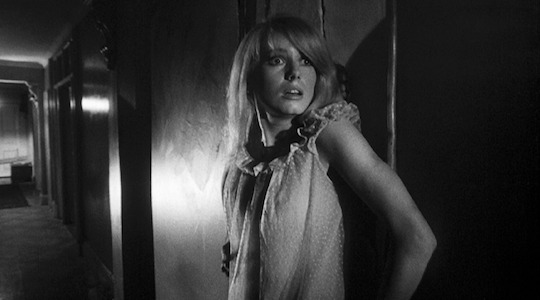
Carol Ledoux - Repulsion (1965)
Catherine Deneuve
Carol is an extremely realistic portrayal of an amalgam of real psychological issues, making her the ultimate representation of insanity. None of her problems are simply made up as so many insane characters are in film, rather they are artistically augmented into a highly compelling yet simultaneously repulsive character. The world attacks her and she has no escape, but with a few plot exceptions, these attacks are things that would only affect Carol herself so severely, such as finding a shaving razor in a cup she uses for her toothbrush. For her, the razor becomes phallic and like so many other things, it’s violating. This is a place all humans have within them. With Carol, it’s on the surface, and it makes her very dangerous.
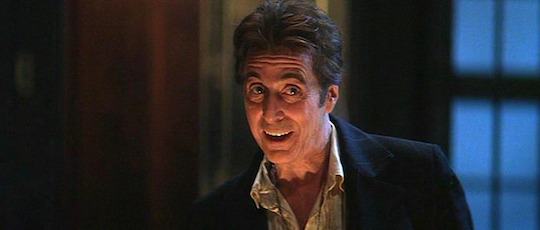
John Milton - The Devil’s Advocate (1997)
Al Pacino
Spoiler warning, he’s Satan. And it’s appropriate he named himself John Milton because next to Paradise Lost, this film may be the best character study of the devil ever made. Milton is, naturally, a lawyer. His bravado is supernaturally backed up, his cruelty is all to human. He is a wholly realistic man, but he is powered by a biblical generator of evil. He is fun, he is enviable, and his arguments against God are so effective that they seem logically sound, along with his demeanor and hedonism. This is Anton LaVey’s own devil in every way.
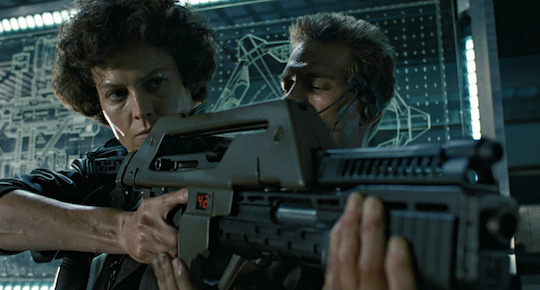
Ellen Ripley - Aliens (1986)
Sigourney Weaver
Alien created Ellen Ripley from a role written as a male without changing a line. This was a great leap for cinematic feminism at the time. But she was not yet Ellen Ripley as we know her. Who we know as Ripley was created more by James Cameron when he turned her into a heroine rather than a survivor. Ripley begins the film unwilling and ends the film as the most badass power-loader operator in the galaxy. She does so partly out of maternal instinct for Newt, but her character in Aliens goes far beyond this and develops a character arc like absolutely nothing else in cinema.

Jack Skellington - The Nightmare Before Christmas (1993)
Chris Sarandon, Danny Elfman, Walt Disney Feature Animation
Jack is unhappy with his job. Simple as that. He’s bored and he wants to try something new, and being constrained by his very nature as the embodiment of Halloween, he ruins it. This is so human it’s painful to see, and he is ultimately incredibly sympathetic. But what makes him a great character is his final revelation that though he’s wrecked Christmas, he’s the damn Pumpkin King and that’s friggin’ awesome. Thus his journey is one of self realization and the renewal of pride in ones self.
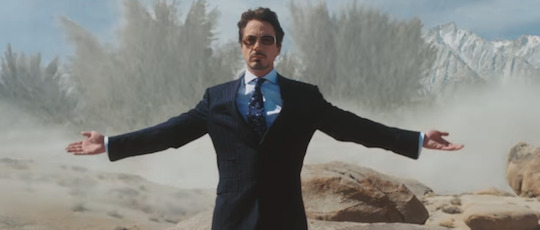
Tony Stark - Iron Man (2008)
Robert Downey Jr.
He’s a jerk, and a merchant of death. Basically the worst kind of person. His arc (no pun intended) is set off by far from altruistic means, but by survival. That’s the thing about Stark- He never actually becomes much of a better person. he remains a blaggard and a cynic, but his actions begin to play at altruism simply because it’s what he feels he wants to do. Stark is in many ways irredeemable, yet his charismatic nature and incredible genius (and let’s face it, enviable wealth) make him extremely compelling to watch.
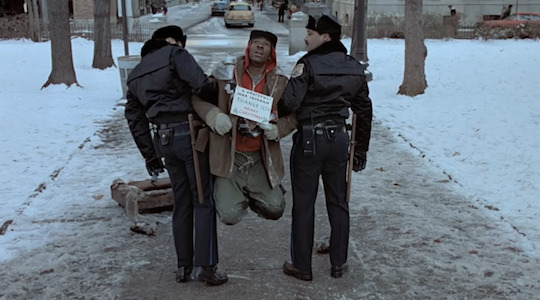
Billy Ray Valentine - Trading Places (1983)
Eddie Murphy
Valentine is an impoverished scammer who never had a chance to be anything better. Then he gets the chance, and he explodes into the scene with skill and intelligence that he always had, but could never use. While his counterpart in the film descends and he ascends the social ladder, what becomes critical is that he never loses himself and degenerates into the vices of wealth. He’s proof that a good person only needs a chance to be good. And he does it all with panache.
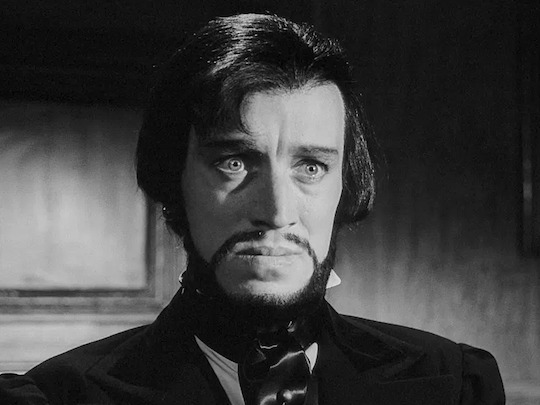
Albert Emanuel Vogler - The Magician (1958)
Max von Sydow
It’s impossible to explain this one without fatal spoilers. See the movie.
*Mishima and Bronson belong on this list but they’re real people so I can’t really include them in the character post, despite their film counterparts being very creative representations. They aren’t characters that someone designed, they’re real people. And even more importantly, this list is in part a recognition of realistic characters. Both Mishima and Bronson are far too unrealistic to be believed as film characters.
28 notes
·
View notes
Text
A TRAGIC ACTOR by Anton Chekhov
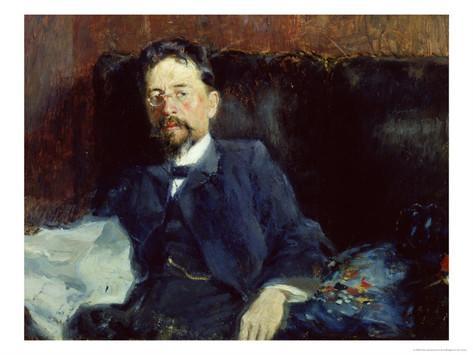
IT was the benefit night of Fenogenov, the tragic actor. They were acting "Prince Serebryany." The tragedian himself was playing Vyazemsky; Limonadov, the stage manager, was playing Morozov; Madame Beobahtov, Elena. The performance was a grand success. The tragedian accomplished wonders indeed. When he was carrying off Elena, he held her in one hand above his head as he dashed across the stage. He shouted, hissed, banged with his feet, tore his coat across his chest. When he refused to fight Morozov, he trembled all over as nobody ever trembles in reality, and gasped loudly. The theater shook with applause. There were endless calls. Fenogenov was presented with a silver cigarette-case and a bouquet tied with long ribbons. The ladies waved their handkerchiefs and urged their men to applaud, many shed tears. . . . But the one who was the most enthusiastic and most excited was Masha, daughter of Sidoretsky the police captain. She was sitting in the first row of the stalls beside her papa; she was ecstatic and could not take her eyes off the stage even between the acts. Her delicate little hands and feet were quivering, her eyes were full of tears, her cheeks turned paler and paler. And no wonder -- she was at the theater for the first time in her life.
"How well they act! how splendidly!" she said to her papa the police captain, every time the curtain fell. How good Fenogenov is!"
And if her papa had been capable of reading faces he would have read on his daughter's pale little countenance a rapture that was almost anguish. She was overcome by the acting, by the play, by the surroundings. When the regimental band began playing between the acts, she closed her eyes, exhausted.
"Papa!" she said to the police captain during the last interval, "go behind the scenes and ask them all to dinner to-morrow!"
The police captain went behind the scenes, praised them for all their fine acting, and complimented Madame Beobahtov.
"Your lovely face demands a canvas, and I only wish I could wield the brush!"
And with a scrape, he thereupon invited the company to dinner.
"All except the fair sex," he whispered. "I don't want the actresses, for I have a daughter."
Next day the actors dined at the police captain. Only three turned up, the manager Limonadov, the tragedian Fenogenov, and the comic man Vodolazov; the others sent excuses. The dinner was a dull affair. Limonadov kept telling the police captain how much he respected him, and how highly he thought of all persons in authority; Vodolazov mimicked drunken merchants and Armenians; and Fenogenov (on his passport his name was Knish), a tall, stout Little Russian with black eyes and frowning brow, declaimed "At the portals of the great," and "To be or not to be." Limonadov, with tears in his eyes, described his interview with the former Governor, General Kanyutchin. The police captain listened, was bored, and smiled affably. He was well satisfied, although Limonadov smelt strongly of burnt feathers, and Fenogenov was wearing a hired dress coat and boots trodden down at heel. They pleased his daughter and made her lively, and that was enough for him. And Masha never took her eyes off the actors. She had never before seen such clever, exceptional people!
In the evening the police captain and Masha were at the theater again. A week later the actors dined at the police captain's again, and after that came almost every day either to dinner or supper. Masha became more and more devoted to the theater and went there every evening.
She fell in love with the tragedian. One fine morning, when the police captain had gone to meet the bishop, Masha ran away with Limonadov's company and married her hero on the way. After celebrating the wedding, the actors composed a long and touching letter and sent it to the police captain.
It was the work of their combined efforts.
"Bring out the motive, the motive!" Limonadov kept saying as he dictated to the comic man. "Lay on the respect. . . . These official chaps like it. Add something of a sort . . . to draw a tear."
The answer to this letter was most discomforting. The police captain disowned his daughter for marrying, as he said, "a stupid, idle Little Russian with no fixed home or occupation."
And the day after this answer was received Masha was writing to her father.
"Papa, he beats me! Forgive us!"
He had beaten her, beaten her behind the scenes, in the presence of Limonadov, the washerwoman, and two lighting men. He remembered how, four days before the wedding, he was sitting in the London Tavern with the whole company, and all were talking about Masha. The company was advising him to "chance it," and Limonadov, with tears in his eyes, urged: "It would be stupid and irrational to let slip such an opportunity! Why, for a sum like that one would go to Siberia, let alone getting married! When you marry and have a theater of your own, take me into your company. I shan't be a master then, you'll be a master."
Fenogenov remembered it, and muttered with clenched fists:
"If he doesn't send money I'll smash her! I won't let myself be made a fool of, damn my soul!"
At one provincial town, the company tried to give Masha the slip, but Masha found out, ran to the station, and got there when the second bell had rung and the actors had all taken their seats.
"I've been shamefully treated by your father," said the tragedian; "all is over between us!"
And though the carriage was full of people, she went down on her knees and held out her hands, imploring him:
"I love you! Don't drive me away, Kondraty Ivanovitch," she sought him. "I can't live without you!"
They listened to her entreaties, and after consulting together took her into the company as a "countess" -- the name they used for the minor actresses who usually came on to the stage in crowds or in dumb parts. To begin with, Masha used to play maid-servants and pages, but when Madame Beobahtov, the flower of Limonadov's company, eloped, they made her ingénue. She acted badly, lisped, and was nervous. She soon grew used to it, however, and began to be liked by the audience. Fenogenov was much displeased.
"To call her an actress!" he used to say. "She has no figure, no department, nothing whatever but silliness."
In one provincial town, the company acted Schiller's "Robbers." Fenogenov played Franz, Masha, Amalie. The tragedian shouted and quivered. Masha repeated her part like a well-learnt lesson, and the play would have gone off as they generally did had it not been for a trifling mishap. Everything went well up to the point where Franz declares his love for Amalie and she seizes his sword. The tragedian shouted, hissed, quivered, and squeezed Masha in his iron embrace. And Masha, instead of repulsing him and crying "Hence!" trembled in his arms like a bird and did not move, . . . she seemed petrified.
"Have pity on me!" she whispered in his ear. "Oh, have pity on me! I am so miserable!"
"You don't know your part! Listen to the prompter!" hissed the tragedian, and he thrust his sword into her hand.
After the performance, Limonadov and Fenogenov were sitting in the ticket box-office engaged in conversation.
"Your wife does not learn her part, you are right there," the manager was saying. "She doesn't know her line. . . . Every man has his own line, . . . but she doesn't know hers. . . ."
Fenogenov listened, sighed, and scowled and scowled.
Next morning, Masha was sitting in a little general shop writing:
"Papa, he beats me! Forgive us! Send us some money!"
0 notes